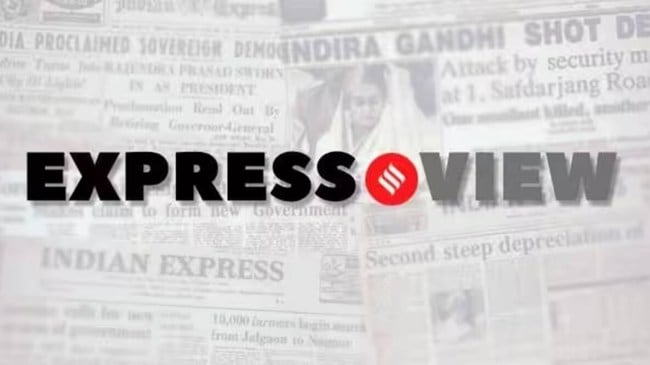Opinion President Droupadi Murmu, R N Ravi and Supreme Court: Questions for the Bench
Presidential reference to SC on its Raj Bhavan verdict should enrich discourse on state-Centre balance. That also needs good faith, not suspicion
 That the President chose to make a reference to the Court under Article 143, which concerns the SC’s advisory jurisdiction on critical constitutional questions, instead of merely seeking a review of its April ruling, has also sharpened the stakes.
That the President chose to make a reference to the Court under Article 143, which concerns the SC’s advisory jurisdiction on critical constitutional questions, instead of merely seeking a review of its April ruling, has also sharpened the stakes. Chief Justice Bhushan Ramkrishna Gavai, who was sworn in to the highest judicial office Wednesday, the first Buddhist and only the second Dalit to be elevated to this position, begins with a plateful. President of India Droupadi Murmu has sent the Supreme Court a list of 14 questions sparked by the Court’s April verdict. The SC had declared the action of Tamil Nadu Governor RN Ravi in reserving 10 bills for the consideration of the President, after they had been reconsidered by the state legislative assembly, to be “illegal” and “erroneous”. In the process, it prescribed timelines for the Governor’s decision in the lawmaking process — three months when a bill is first sent, a month when it is resent. More controversially, it laid down a three-month deadline for the President as well. Unsurprisingly, this was seen as contentious. It could be argued that guardrails for the exercise of gubernatorial discretion were needed, and especially so in a political context where, in several states, governors appointed by the BJP-ruled Centre are seen to be locked in open and perpetual conflict with the non-BJP elected government, smudging lines of accountability and creating obstacles in governance. But by asking the President to adhere to a deadline, by prescribing the manner in which she must exercise the power given to her by Article 201 — in other words, by seeking to limit the President’s constitutional discretion — the court invited questions of overreach.
Vice President Jagdeep Dhankhar articulated those concerns by overstating them. Article 142, which empowers the SC to pass “any decree or order necessary for doing complete justice in any case or matter pending before it”, a power it exercised in the case against Tamil Nadu Governor Ravi, had become a “nuclear missile against democratic forces”, he said. Now, the President’s 14 questions — even though the Court is not obliged to answer them, and in spite of the fact that its opinions are not legally binding — are an opportunity. They can lay the ground for a calmer dialogue and deliberation on the issues that lie at the core of the matter — the constitutional doctrine of separation of powers; the boundaries of executive discretion and judicial review (can the latter, for instance, kick in even before a bill becomes law?); the balance between the executive, legislature and judiciary in a framework of federal democracy.
Going ahead, such a dialogue will be complicated by the political context in which it occurs — an aggressive executive has been facing off with the judiciary, with the waqf law that has been passed by Parliament and taken up by the Court for a pointed questioning being the latest flashpoint. The process of deliberation will also be made more fraught by the fact that among President Murmu’s 14 questions to the Court are those that challenge its broader powers under Article 142 — going much beyond the questions of justiciability of gubernatorial and presidential discretion. That the President chose to make a reference to the Court under Article 143, which concerns the SC’s advisory jurisdiction on critical constitutional questions, instead of merely seeking a review of its April ruling, has also sharpened the stakes. For it to be fruitful, the to-and-fro between the President and the Court will need to be conducted in a climate of mutual trust and respect, not suspicion.






